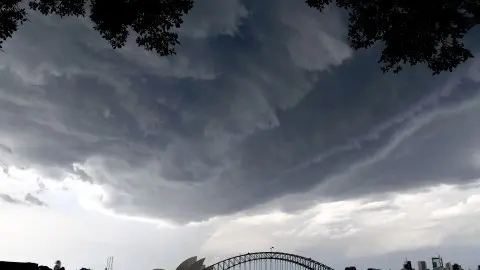Asia FX Talking: Caution ahead of Osaka G20
Although expectations of any trade breakthroughs at the Osaka G20 meeting are very low, passing this summit without trade tensions worsening substantially would be a relief, not least for the battered Korean won and the Taiwanese dollar
Executive summary
Conjecture about whether the Chinese president will attend the G20 Osaka meeting, and whether or not he will meet on the sidelines to talk trade with US President Trump has been relentless in recent weeks. Resting on that one decision could be 25% of tariffs on another US$300bn of Chinese goods, and a new gut-wrenching lurch down in the Asian economic cycle and FX markets.
We aren’t expecting any breakthroughs, but neither do we anticipate this being the tipping point from which things suddenly get a whole lot worse. If we’re right, then any “upside” on the most beleaguered currencies in the region – think Korean won and the Taiwanese dollar - is likely to be capped.
The economic backdrop is now quite different from just a month or two ago, with a very good chance that we see Fed rate cuts in the coming months if not weeks. At current and perhaps even lower Treasury yields, the trusted relationship between the USD and incremental increases in tariffs (USD has appreciated until now) may change.
Local monetary responses are also beginning to provide some pushback, and it’s noteworthy that the performance of the “cutters” is often better than those who are holding steady – food for thought for those who haven’t yet cut, but look as if they soon will. Think the central banks of Korea and Indonesia.
In the backdrop, falling oil prices will support the usual suspects – INR, PHP, but weigh against the MYR – that already looks partly priced in. But the extent and durability of oil’s decline is still unclear. If it falls much further, Asia’s exporters may suffer an additional blow from the reduced purchasing power of the producer nations, as in 2015/16.
Tags
AsiaDownload
Download report
14 June 2019
What’s happening in Australia and the rest of the world? This bundle contains 10 Articles"THINK Outside" is a collection of specially commissioned content from third-party sources, such as economic think-tanks and academic institutions, that ING deems reliable and from non-research departments within ING. ING Bank N.V. ("ING") uses these sources to expand the range of opinions you can find on the THINK website. Some of these sources are not the property of or managed by ING, and therefore ING cannot always guarantee the correctness, completeness, actuality and quality of such sources, nor the availability at any given time of the data and information provided, and ING cannot accept any liability in this respect, insofar as this is permissible pursuant to the applicable laws and regulations.
This publication does not necessarily reflect the ING house view. This publication has been prepared solely for information purposes without regard to any particular user's investment objectives, financial situation, or means. The information in the publication is not an investment recommendation and it is not investment, legal or tax advice or an offer or solicitation to purchase or sell any financial instrument. Reasonable care has been taken to ensure that this publication is not untrue or misleading when published, but ING does not represent that it is accurate or complete. ING does not accept any liability for any direct, indirect or consequential loss arising from any use of this publication. Unless otherwise stated, any views, forecasts, or estimates are solely those of the author(s), as of the date of the publication and are subject to change without notice.
The distribution of this publication may be restricted by law or regulation in different jurisdictions and persons into whose possession this publication comes should inform themselves about, and observe, such restrictions.
Copyright and database rights protection exists in this report and it may not be reproduced, distributed or published by any person for any purpose without the prior express consent of ING. All rights are reserved.
ING Bank N.V. is authorised by the Dutch Central Bank and supervised by the European Central Bank (ECB), the Dutch Central Bank (DNB) and the Dutch Authority for the Financial Markets (AFM). ING Bank N.V. is incorporated in the Netherlands (Trade Register no. 33031431 Amsterdam).


